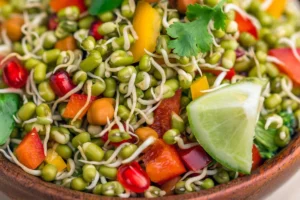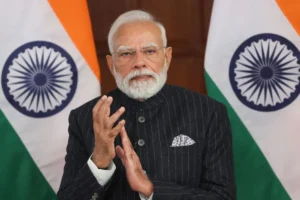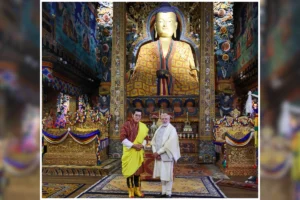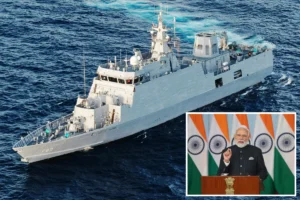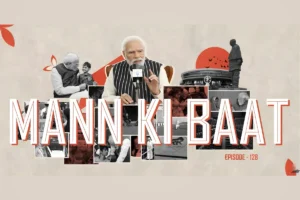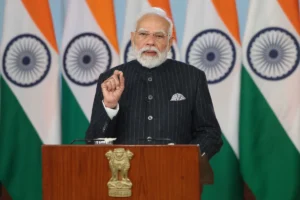
IPEF Trade Pillar
Ahead of the upcoming Indo-Pacific Economic Framework (IPEF), India to soon announce its call on joining the trade pillar of the summit amid the feelings with the government that it may be losing out on shaping the negotiation with its ‘observer’ status.
Citing it was unclear what benefits member countries, including India, would derive from the negotiations, India pulled out of the IPEF’s trade pillar-related negotiations in September last year.
However, a board consensus had then not emerged on sensitive issues such as labour, environment, digital trade, and public procurement. As a result, India decided to wait for the final contours, and chose to be an ‘observer’.
According to sources familiar with this matter said, while the United States (US) Trade Representative — responsible for coordinating US international trade and negotiations with other countries — shared the trade pillar’s negotiating text with 13 other IPEF partners earlier this year, being just an observer, India has not able to get access to the negotiation rounds regarding the trade pillar that kick-started thereafter.
This has set off discussions among policymakers about whether India should join the trade pillar now, participate in negotiations, or rather contemplate joining it at a later stage when negotiations are concluded. In case the latter happens, India will have to accept what will be offered, one of the persons referenced earlier told Business Standard.
The commerce department will soon take a final call on this matter, which will also involve seeking approval from the Prime Minister’s Office regarding India’s stand on this.
One of the sources said, “Does it make more sense to take part in negotiations than not having an opportunity to negotiate/voice concerns regarding some aspects of the trade pillar? Discussions are on. Stakeholder consultations, along with a detailed study to understand the implications of the trade pillar, have been done. A final decision on this will be made soon.”
During the IPEF’s ministerial meetings in Singapore and Detroit, India also had bilateral meetings with other member nations, including the US, to get greater clarity on some aspects of the pillar.
IPEF launched a year ago, is seen as an economic initiative to counter China’s influence in the South and Southeast Asian nations. The US and the 13 other members of the IPEF are Australia, Brunei, Fiji, Indonesia, India, Japan, South Korea, Malaysia, New Zealand, the Philippines, Singapore, Thailand, and Vietnam.
Taking notes from the IPEF has four pillars, which are trade, supply-chain resilience, clean economy, and fair economy (tax and anti-corruption) under the economic initiative. Except for India and Malaysia, the rest of the countries have joined all four pillars.
Professor of the Indian Council for Research on International Economic Relations, Arpita Mukherjee said that India may not have joined the trade pillar owing to certain sensitive areas such as digital trade or due to high tariffs.
“However, joining the pillar later might place us at a disadvantage and we may lose out on the scope of participating in negotiations. Also, if we don’t join the trade pillar, we may be able to use it as a bargaining tool with major trading partners like the US to do a bilateral agreement,” she said.
Further, Mukherjee explained that since there is synergy between the trade and supply-chain pillar, and since India’s competitors such as Vietnam and Thailand are a part of both, they may have an advantage vis-à-vis India.
Alternatively, last month, a civil society, comprising 32 organisations and the Samyukt Kisan Morcha, urged Prime Minister Narendra Modi to not join IPEF’s trade pillar, as it would enable the entry of agritech firms into India. They said that IPEF is non-transparent and almost unilaterally designed by the US.
To read more such news, download Bharat Express news apps







